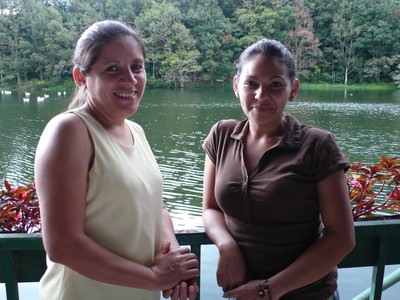While the genetic and biomedical explanations dominate psychiatric understanding in the Global North, Nicaraguans frequently attribute psychosis to external factors, including trauma and long-term regional conflict.
A study published in the Journal of Mental Health indicates that Nicaraguan individuals often link the onset of psychosis to such external triggers. Although medications were generally well-received when available, many participants emphasized community support, meaningful engagement in activities, and drawing strength from religious beliefs and magical forces. Barriers like societal stigma, social exclusion, and restricted access to psychological treatments emerged as obstacles in their recovery journey.
This perspective starkly contrasts the prevalent approach in High-Income Countries (HICs), where psychotic episodes are often viewed as more distressing and pathological.
Regarding their findings, the authors state:
“Our findings point to the potential utility of culturally adapted psychological interventions in Nicaragua as well as the value of lay and community workforces in delivering such interventions,” the researchers write.
“Interventions that are not culturally adapted are unlikely to have direct relevance in LMIC settings, where daily struggles to survive poverty is one of the most pressing issues. Therefore, an important early stage of cultural adaptation of interventions is the development of an in-depth understanding of psychosis from the perspective of people with lived experience.”
Minna Lyons and Patrick Evison from the University of Liverpool’s School of Psychology, along with Roberto Berrios and Sara Castro from Cuenta Conmigo in Matagalpa, Nicaragua, and Helen Brooks from the University of Liverpool’s Department of Health Services Research, collaborated to explore psychosis in Nicaragua.

Their research aimed to understand service users’ experiences with psychosis in Nicaragua. The authors highlight that Nicaragua offers a unique backdrop for studying psychosis due t“ potential external triggers like political instability, remnants of the revolution/they’rear, natural disasters, violence, and poverty. They note:
“Though psychotic experiences are common in Low and Middle-Income Countries (LMICs), they’re often seen as less distressing and pathological than in High-Income Countries (HICs). However, LMIC residents face numerous stressors, potentially heightening their risk of psychosis. Much of the research in LMICs cent”rs on broad epidemiological data, leading to interventions rooted in the biomedical disease model, which might not always align with local cultures.”
For their study, the authors enlisted 28 participants from Matagalpa, all with lived experience of psychosis. Researchers organized three focus groups that each spanned 60 to 90 minutes. These sessions started with discussions about living with psychosis then delved into its causes, management strategies, and barriers to effective treatment. All focus groups were recorded, transcribed, and later translated from Spanish to English for analysis.
The researchers classified focus group data into four categories: magical and religious influences, causes of psychosis, its management, and treatment barriers. Most participants identified as religious, citing faith as central to their psychosis management. Activities like reading the Bible, attending church, and prayingreligion’suently mentioned. Some believed their deity could alleviate their symptoms, with a couple discontinuing medication, trusting in their religion’s healing power. The church provided an accessible communal space and facilitated social interaction.
Participants shared that in Nicaragua, many associate psychosis with witchcraft or black magic. One believed their condition resulted from consuming food tainted by black magic or witchcraft.
However, more commonly, participants linked their psychosis to external traumas such as domestic abuse, childhood neglect, homelessness, relationship breakups, and the aftermath of the Nicaraguan Revolution that concluded in 1990.
To manage their condition, many relied on medications, community and lay support, relaxation techniques, and professional mental health services. While most had a positive view of medications, some did grapple with side effects.
Community support was invaluable for many, particularly from groups like Cuenta Conmigo. This organization connected participants with others who had firsthand experience with psychosis. Support from family, friends, and neighbors was also crucial, offering both social interaction and practical assistance. Mothers were frequently noted as especially supportive.
Engaging in household chores, reading, and exercising were popular distraction techniques. Some participants also mentioned relaxation exercises, such as deep breathing and positive thinking, as beneficial.
Participants highlighted restricted access to care and social exclusion as primary challenges in managing their psychosis. The prohibitive cost and scarcity of medications were prominent concerns. Many relayed experiences of mockery from neighbors and discrimination in employment due to their condition.
The authors acknowledged two study limitations. Only service users were part of the focus groups, limiting the range of perspectives. As all participants were from Matagalpa and members of Cuenta Conmigo, findings might not be universally applic“ble, even within Nicaragua. Furthermore, the translation from Spanish to English might have missed sone’suances.
Concluding, the authors stated:
“Our study underscores the profound importance of grasping the lived experiences of psychosis within one’s cultural milieu. Participants frequently linked their distress t” trauma, prioritizing this over the biomedical model. Religion also played a pivotal role in symptom management, recovery, and social engagement.”
Past research has suggested that social disadvantage can be a precursor to psychosis. In the U.S., studies have found that psychosis is often intertwined with racism and systemic inequality. Traumas, like sexual assault, amplify the risk of experiencing psychosis. This connection between early childhood trauma and psychosis has been routinely observed in studies, including recent research from Pakistan.
****
Lyons, M., Evison, P., Berrios, R., Castro, S., & Brooks, H. (2020). The lived experience of psychosis in Nicaragua: A qualitative examination of the views of service users. Journal of Mental Health, 31(1), 50–57. https://doi.org/10.1080/09638237.2020.1844871 (Link)















Sorry, not being picky, beyond the typos, encoding or faulty computer memory, but I got the impression the pakistani study reviewed in:
https://www.madinamerica.com/2023/09/childhood-trauma-and-stressful-life-events-linked-to-depression-in-pakistani-women/
Actually excluded people with psychosis.
And for my curiosity how good a positive factor was?: “Religion also played a pivotal role in symptom management, recovery, and social engagement.”.
But I guess this is a study actually taking into account how patients feel about what benefits, caused and aggravates the ailments. Which is a good thing!, more so when treatment might not provide much benefit, or even be harmfull.
And in this case show, as reviewed, great “insight” on a condition imputed severe lack of, maybe some pros might say the researchers and Cuenta Conmigo might lack insight too?.
Report comment